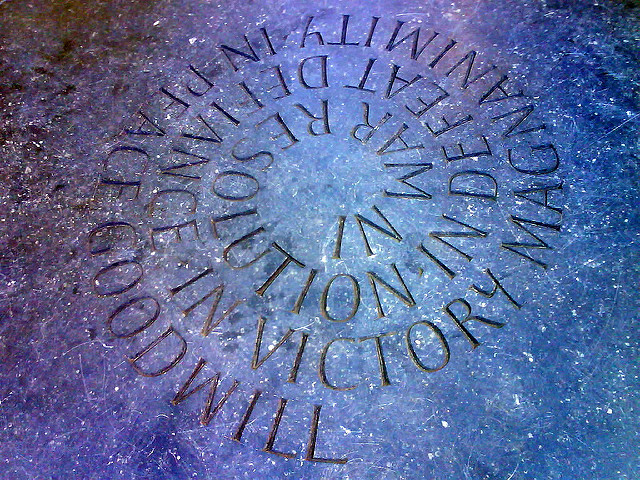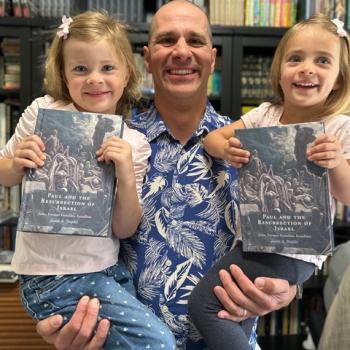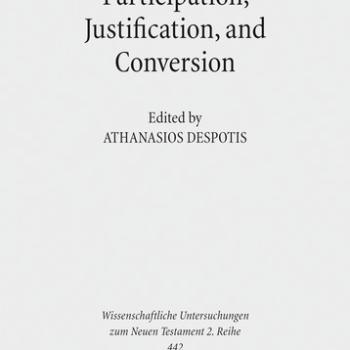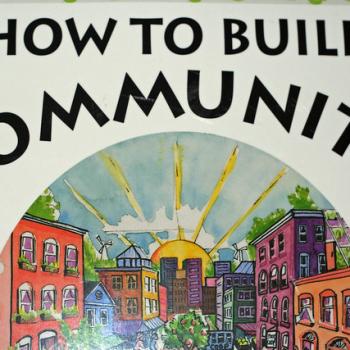
What We Gain When We Lose
Is it even possible? How can we gain when we lose?
The idea of gaining when we experience loss is foreign to what I learned as a child. I was raised in a place where a famous football coach said, “Winning isn’t everything, it’s the only thing.”
Who wants to lose? The idea was we would gain by winning, not losing. That is why we became so focused on winning. Losing was a bad thing, not a good thing.
I was taught the best way to avoid being a sore loser was by not losing.
The idea of leadership seemed to be inextricably enmeshed in the act of winning. Leaders did not lose, they won. The gains to which we paid attention came from winning, being victorious.
We paid no attention at all to any gains which might have been the results of loss.
In our minds, leadership was about not losing. Our leadership was stronger and more effective because we would win.
Life would be so much better, for everyone, once we were victorious.
Some of the leaders who inspire me have shown me what we gain when we lose. They have experience significant professional and personal loss and taught me about it. These leaders have seen for themselves what we gain when we lose.
They do not offer glib platitudes or shallow responses. The pain of loss is still with them.
None of us wants to lose, to do what we need to do to gain in those ways. They have struggled to become aware, deep within themselves, of what we gain when we lose.
We have challenging lessons to learn. What we gain when we lose turns what we held to be true upside down.
Can We Gain When We Lose?
I know people who believe the idea of gaining when we lose is just another way of being nice to losers. It is a sort of participation trophy for leaders who are not as effective.
It can be a challenge for us, in our culture, to even entertain the possibility we might not win. Our focus is more on winning than on playing well, doing our best.
We have so much riding on winning we cannot consider the possibility we might gain when we lose.
I enjoy winning at least as much as anyone else. It feels good to win. There have been times, particularly practicing law, when winning was especially important to me. Whether trials or hearings, motions or cross-examinations, there was a lot riding on winning.
The way it feels to win and the differences winning can make may cause us to ignore what we gain when we lose.
We can begin to believe our desire to win justifies whatever we need to do to achieve it.
The benefits of prevailing become more significant to us than anything else. We lose sight of and discount what we gain when we lose. Our view of winning and losing becomes dualistic. Winning is all beneficial and losing is to be avoided at all costs.
We stop paying attention to the benefits we gain when we lose.
Ironically, one of the ways we gain when we lose is a deeper understanding of what winning means. Our experience of winning reinforces our desire to win. When we lose we begin again to pay attention to what we learn from losing.
Losing teaches us more valuable lessons than winning does.
It is as if our will to win tends to erase for us any understanding of what we gain when we lose.
How Do We Gain When We Lose?
Many people see members of monastic communities as losing a great deal of freedom. They take vows to behave in certain ways and not behave in others. Some people see monks as losing a great deal when they enter monastic life.
The monks I know see losing and winning differently. The commitments they make may be challenging and they may struggle. Their understanding of giving up the flexibility to act in certain ways is not tied to the idea of winning or losing.
What some see as losing monks experience as being focused on deeper truths. Monastic understanding of the reasons for changing our behavior shines a light on the benefits we gain.
Monks are like leaders who guide people to commit themselves to an organization’s goals. They may recognize the need for sacrifices and temporary losses. Understanding the deeper truths can show them the benefits of losing in the short term.
As we open ourselves to the reasons supporting a decision we begin to see what we gain when we lose. We start to understand winning and losing in new ways.
Do We Gain When We Lose?
There are things we do not enjoy about losing. At times we would still like to be relentless, well-oiled winning machines. We have taught ourselves there is winning and there is losing, and winning is better.
It can be a struggle for us to see winning and losing differently. Like strong leaders and strong monks we need to take our time and consider the deeper reasons.
Can we look clearly at what we see as winning and losing to appreciate how things really are? Are there deeper truths we can explore which will change how we experience winning and losing?
It can be easy for us to fall into expected ways of experiencing winning and losing. A dualistic view of life pushes us into either/or ways of seeing the world. We forget or ignore what we gain when we lose.
One step at a time we practice understanding the world in new ways. The decisions we make and ways we act each day shape how we live the rest of our lives.
We can view the world as starkly divided between winners and losers, or we can recognize what we gain when we lose.
What will we gain when we lose today?
How will the ways we see winning and losing change this week?
[Image by Kevin Hutchinson]
Greg Richardson is a spiritual life mentor and leadership coach in Southern California. He is a recovering attorney and university professor, and a lay Oblate with New Camaldoli Hermitage near Big Sur, California. Greg’s website is StrategicMonk.com, and his email address is StrategicMonk@gmail.com.

















